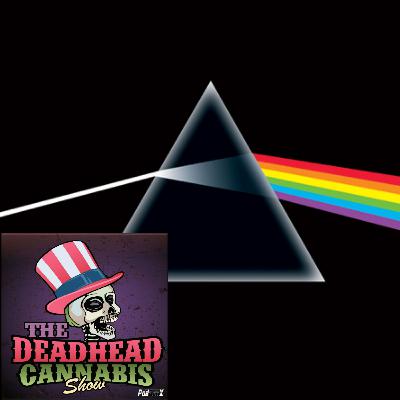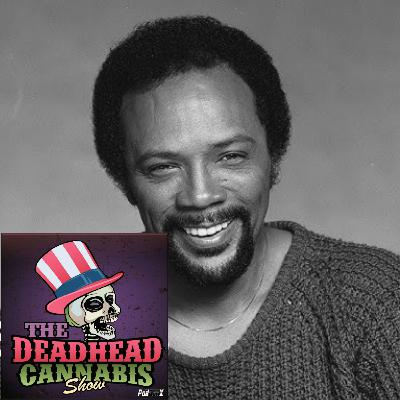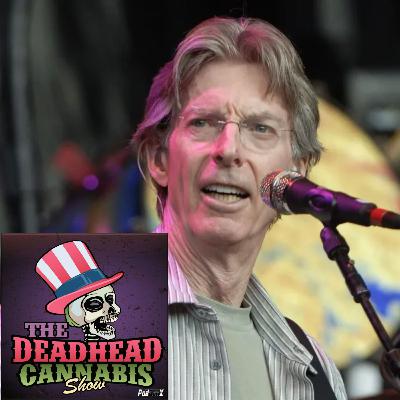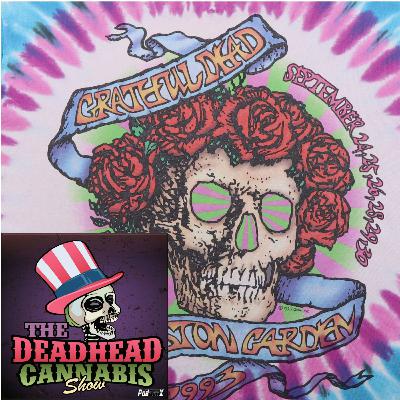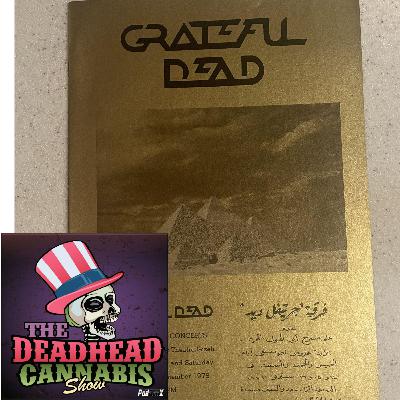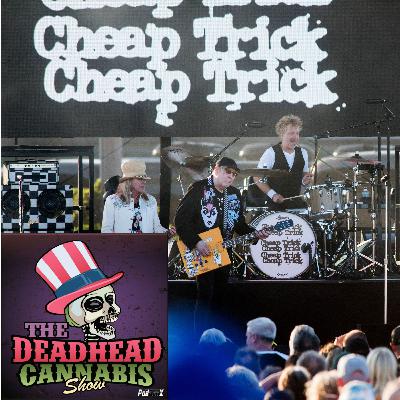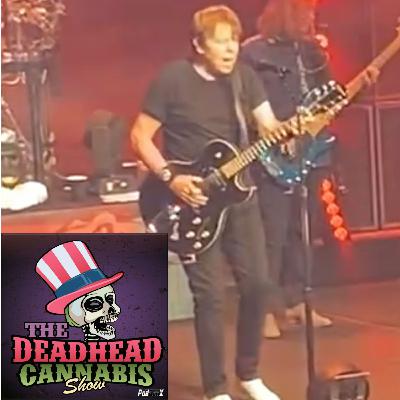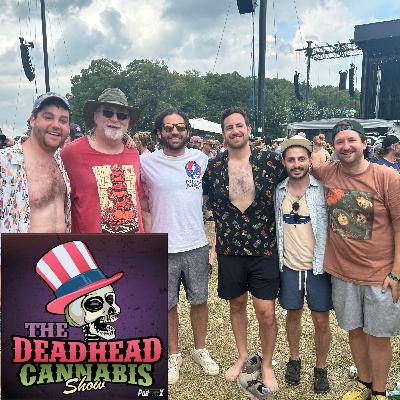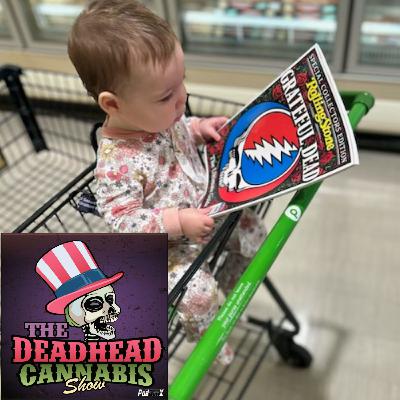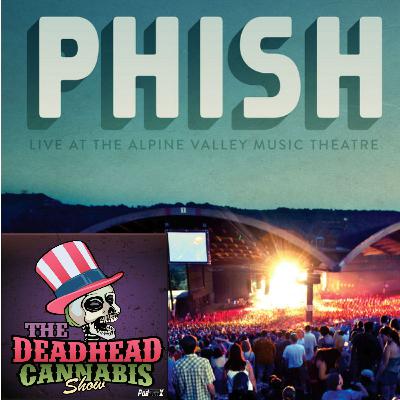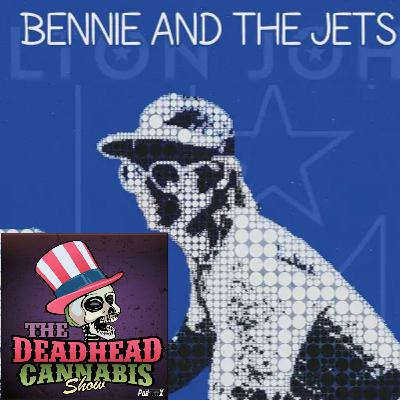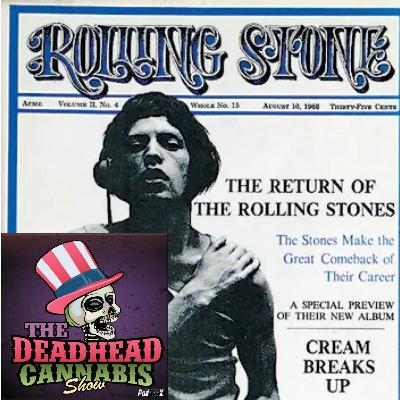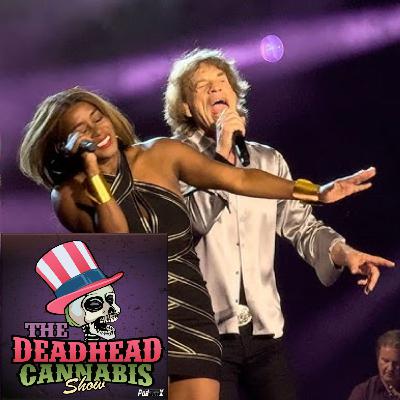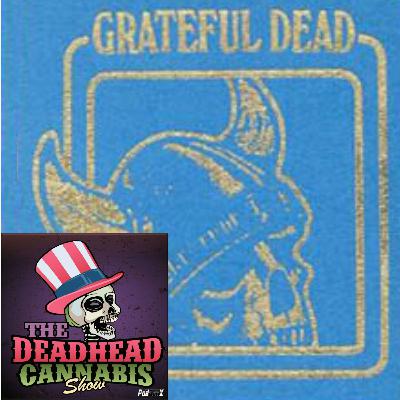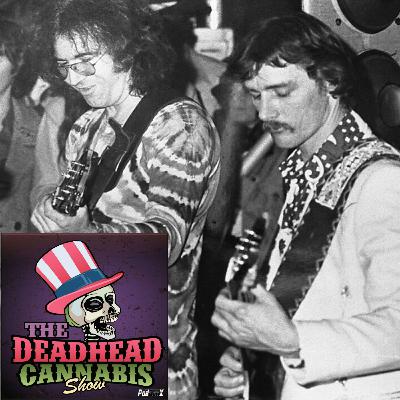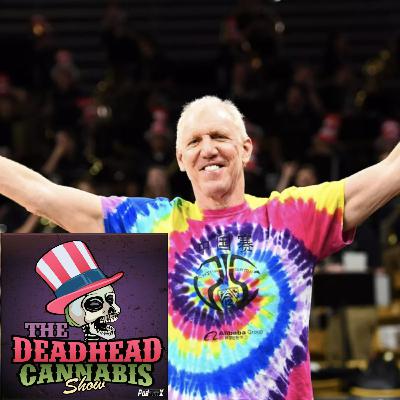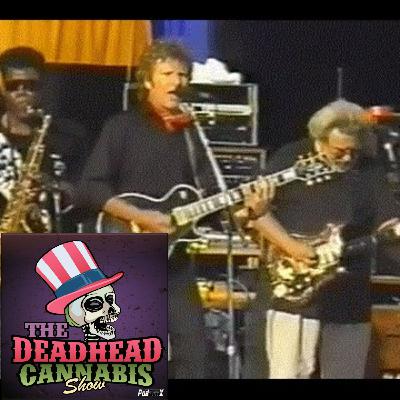Winterland Arena, 51 years ago, second set highlights: Mississippi Half-Step and Beyond
Description
Music News: Pink Floyd and Joni Mitchell
In this episode of the Deadhead Cannabis Show, Larry Mishkin reflects on the intersection of music and cannabis in the wake of the recent elections. He delves into the Grateful Dead's legacy, highlighting a notable performance from 1973, and explores the lyrical depth of 'To Lay Me Down.' The conversation also touches on music news, including Pink Floyd's 'Dark Side of the Moon' and Joni Mitchell's recent birthday. The episode concludes with a discussion on recent research indicating that cannabis may serve as a substitute for more dangerous substances. This conversation explores the complex relationship between cannabis use and substance consumption among young adults, the implications of Florida's failed marijuana legalization initiative, and the potential of cannabis as a harm reduction tool for opioid use. It also highlights popular cannabis strains and their effects, alongside a cultural reflection on the Grateful Dead's music.
Chapters
00:00 Post-Election Reflections: Music and Cannabis
08:29 The Grateful Dead's Musical Legacy
14:48 Exploring the Lyrics: To Lay Me Down
21:59 Music News: Pink Floyd and Joni Mitchell
37:06 Weather Report Suite: A Musical Journey
43:10 Second Set Highlights: Mississippi Half-Step and Beyond
49:36 Marijuana Research: Substitution Effects
51:24 Cannabis Use Among Young Adults
56:13 Florida's Marijuana Legalization Initiative
01:05:01 Cannabis as a Tool for Opioid Harm Reduction
01:11:10 Strains of the Week and Cannabis Culture
Larry's Notes:
Grateful Dead
November 11, 1973 (51 years ago)
Winterland Arena
San Francisco, CA
Grateful Dead Live at Winterland Arena on 1973-11-11 : Free Borrow & Streaming : Internet Archive
Happy Veteran’s Day
A very famous show from a very famous year. Many feel 1973 was the peak of the band’s post psychedelic era. Certainly right up there with 1977 as top years for the band, even by November they were still in full stride during a three night run at Winterland, this being the third and final night of the run. In 2008 the Dead released the box set: “Winterland 1973: The complete recordings” featuring shows from Nov. 9, 10 and 11, 1973.
This was the Dead’s second “complete recordings” release featuring all of the nights of a single run. The first was “Fillmore West, 1969, the Complete Recordings” from Feb. 27, 28 and March 1 and 2 (IMHO the best collection of live music ever released by the band). The band later released a follow up, Winterland 1977: The Complete Recordings a three night run June 7, 8 and 9, 1977 that is also an outstanding box set.
Today’s show has a 16 song first set, a six song second set and a three song encore, a true rarity for a Dead show of any era (other than NYE shows). The second set consists of ½ Step, Big River, Dark Star with MLBJ, Eyes of the World, China Doll and Sugar Magnolia and is as well played as any set ever played by the band. They were on fire for these three days. A great collection of music and killer three night run for those lucky enough to have snagged a ticket for any or all of the nights.
Patrick Carr wrote in the NY Times that: “The Dead had learned how to conceive and perform a music which often induced something closely akin to the psychedelic experience; they were and are experts in the art and science of showing people another world, or a temporary altering (raising) of world consciousness. It sounds pseudomystical pretentious perhaps, but the fact is that it happens and it is intentional.”
INTRO: Promised Land (show opener into Bertha/Greatest Story/Sugaree/Black Throated Wind)
Track #1
0 – 2:10
"Promised Land" is a song lyric written by Chuck Berry to the melody of "Wabash Cannonball", an American folk song. The song was first recorded in this version by Berry in 1964 for his album St. Louis to Liverpool. Released in December 1964, it was Berry's fourth single issued following his prison term for a Mann Act conviction. The record peaked at #41 in the Billboard charts on January 16, 1965.
Berry wrote the song while in prison, and borrowed an atlas from the prison library to plot the itinerary. In the lyrics, the singer (who refers to himself as "the poor boy") tells of his journey from Norfolk, Virginia, to the "Promised Land", Los Angeles, California, mentioning various cities in Southern states that he passes through on his journey. Describing himself as a "poor boy," the protagonist boards a Greyhound bus in Norfolk, Virginia that passes Raleigh, N.C., stops in Charlotte, North Carolina, and bypasses Rock Hill, South Carolina. The bus rolls out of Atlanta but breaks down, leaving him stranded in downtown Birmingham, Alabama. He then takes a train "across Mississippi clean" to New Orleans. From there, he goes to Houston, where "the people there who care a bit about me" buy him a silk suit, luggage and a plane ticket to Los Angeles. Upon landing in Los Angeles, he calls Norfolk, Virginia ("Tidewater four, ten-oh-nine") to tell the folks back home he made it to the "promised land." The lyric: "Swing low, sweet chariot, come down easy/Taxi to the terminal zone" refers to the gospel lyric: "Swing low, sweet Chariot, coming for to carry me Home" since both refer to a common destination, "The Promised Land," which in this case is California, reportedly a heaven on earth.
Billboard called the song a "true blue Berry rocker with plenty of get up and go," adding that "rinky piano and wailing Berry electric guitar fills all in neatly."[2]Cash Box described it as "a 'pull-out-all-the-stops' rocker that Chuck pounds out solid sales authority" and "a real mover that should head out for hit territory in no time flat."[3] In 2021, it was listed at No. 342 on Rolling Stone's "Top 500 Greatest Songs of All Time".
Apparently played by the Warlocks and the Grateful Dead in their earliest days, Bob Weir started playing this with the Dead in 1971, and it remained a regular right through to the band’s last show ever in 1995.
Among those deeply touched by Chuck’s genius were Jerry Garcia and the Grateful Dead. They often paid homage to Chuck by weaving his songs into their performances, breathing new life into his timeless melodies. "Promised Land," with its relentless drive, became an anthem of journey and aspiration. Their electrifying renditions of "Johnny B. Goode" were not mere covers but jubilant celebrations of a narrative that resonated with the dreamer in all of us.
The Grateful Dead's performances of "Around and Around" echoed Chuck's mastery of capturing life's cyclical rhythms—a dance of beginnings and endings, joy and sorrow. And when they took on "Run Rudolph Run," they infused the festive classic with their own psychedelic flair, bridging the gap between tradition and innovation.
A moment etched in musical history was when Chuck Berry shared the stage with the Grateful Dead during their induction into the Rock and Roll Hall of Fame in 1994. The air was thick with reverence and electricity—a meeting of titans where the past, present, and future of rock converged in harmonious resonance. Again, in May 1995, Chuck opened for the Grateful Dead in Portland, Oregon. It was a night where legends collided, and the music swirled like a tempest, leaving a lasting impression on all who were fortunate enough to witness it.<

